Hello how are you? Today’s topic is “The Twilight Years”, in other words
” A old man with a state of trance or ecstacy from Alzheimer Disease”.
目次
What’s “The Twilight Years”?
The Twilight Years, a 1972 novel by Sawako Ariyoshi was published in 1972, about 46 years ago and sold nearly 20 million copies in Japan and was praised by the Japan-studies community in foreign countries as a singular novel.
This is not an exaggeration to say that it became a kind of social phenomenon rather than a serious topic, and even after that, it was aired in some movies, TV, etc, and at the same time, the word “The Twilight Years”, “Koukotsu no hito” has prevailed all over the country.
The contents show that “the closest representation of modern Japanese life” according to donald-keene and a forthright, insightful work into the experience of modern Japanese women.
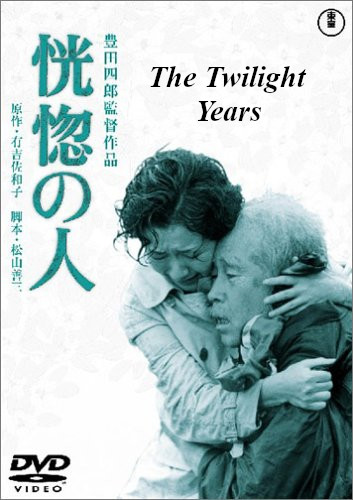
The work, which begins with the married protagonist’s father-in-law seemingly doddering around in senility on a winter street, deals with the twin issues of Aging of Japan and role of women in Japan, who were/are de facto expected to be caretakers of elderly parents or grandparents in a household.
Whats happening of growth in senile dementia cases?
That the number of centenarians in Japan — at a record about 70,000 in which females accounts for 88% as of the latest 2018 survey, — has been and will keep rising comes as positive news and can be attributed to advances in medical technology and services, improvement in living environment and increasing health consciousness that enable people to live longer.
That there were only 153 centenarians when the health ministry’s annual survey began in 1963, with the number topping 10,000 in 1998, 30,000 in 2007 and 50,000 in 2012, shows how rapidly people’s longevity in this country has been extended. The average life expectancy stood at record 88 for women (the second-best in the world) and 81 for men (fourth-best) last year.
But a society in which people live longer also has its worrying aspects. One is that the number of people with senile dementia will inevitably grow with the rise in the elderly population. The number of senior people with dementia, estimated at 4.62 million in 2012, is forecast to reach 7 million — or 1 out of 5 elderly persons in Japan — in 2025.
A Health, Labor and Welfare Ministry estimate shows that there are more than 8 million people with dementia, including those who suffer mild cognitive problems and are believed to carry a high risk of developing the symptom. Senile dementia will soon be a common illness.
The growing problem of senile dementia was one of the key issues discussed at the Group of Seven health ministers’ meeting last week in Kobe, where the participants agreed on the need for early diagnosis of patients and improvement in their living conditions.
The World Health Organization estimates that the number of dementia patients worldwide will triple from the current 47 million by 2050 given the graying populations of many countries.
The government’s strategy in dealing with the issue calls for creating a society where the patients can “keep a life of their own” in their long familiar communities.

That’s easier said that done. Realities of the nation’s aging society dictate that there will be a growing number of households comprised solely of elderly couples or senior residents living alone.
Caring for aging dementia patients at home places a heavy burden on their family members. Community-based support for both the patients and their relatives will be essential, and national and local governments should take steps to encourage and support these efforts.
That more than 10,000 people either suffering from or are suspected to have senile dementia disappear from their homes every year highlights the risks confronting the patients. In 2015, the number rose 13 percent from the previous year to 12,208 across Japan.
Nearly 70 percent of them were found safe on the day their families reported them as missing, and most of them were located within a week. They were either found by their relatives or the police, or returned home on their own. But nearly 500 people were found to have died either of illness or accidents by the time they were located.
There are large numbers of cases in which people with senile dementia wandered out of their homes or care facilities and traveled a surprisingly long distance. Locating and identifying them often requires sharing information about them among different authorities across prefectures.
An 83-year-old man in Yokohama who disappeared in 2014 was later found collapsed on a street in Tokyo, but the local police or rescuers did not put him in protective custody because they did not know he suffered from dementia, and the man later died.
The surest way to ensure the safety of such people is to find them as quickly as possible. Police are promoting efforts to share information about patients who go missing, such as by showing their photos online, with the consent of their families.

What’s the biggest problem of senile dementia currently?
That is still unknown cause definitely why people are inclined to be suffering senile dementia with ageing.
Thanks to the remarkable development of medical sciences, almost all diseases including cancer are cured nowadays, take hypertension and diabetes for instance, we are advised to refrain from excessive intake of salt and carbohydrate like sugar.
On the other hand, however, as far as dementia is concerned, surest preventive measures has not yet been discovered. But, I found the articles of medical journal about how to lessen the risk of dementia the other day, so I’d like to write the content of teeth that is not all causes of dementia but has something to do with it here.
By the way, Alzheimer’s disease is most people recognaize its similarity though, it is a form of dementia that specifically affects parts of the brain that control thought, memory and language.
Tooth loss, periodontal disease, and dementia: Is there a link?
People with poor oral hygiene or gum disease, tooth loss may be at a greater risk of developing Alzheimer’s disease, according to a study published online in the Journal of Alzheimer’s Disease.
Researchers at The University of Central Lancashire (UCLan) School of Medicine and Dentistry in England led by Drs. StJohn Crean and Sim K. Singhrao examined brain tissue samples donated by 10 patients without dementia and 10 patients with dementia.
They found gum disease bacteria lipopolysaccharides (the surface of the bacterium) in the sample from four of the people with dementia and none of the people who did not have dementia. Bacteria can enter the bloodstream through everyday activities such as eating, chewing and toothbrushing.
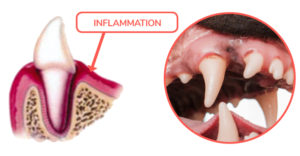
Once in the bloodstream, the bacteria can be carried to other parts of the body.
The researchers hypothesized that when the bacteria reach the brain, they may trigger an immune system response (like they do in the mouth), killing brain cells.
This immune response could be one mechanism that leads to changes in the brain, which is typical in Alzheimer’s disease. It could play a role in causing symptoms such as confusion and deteriorating memory.
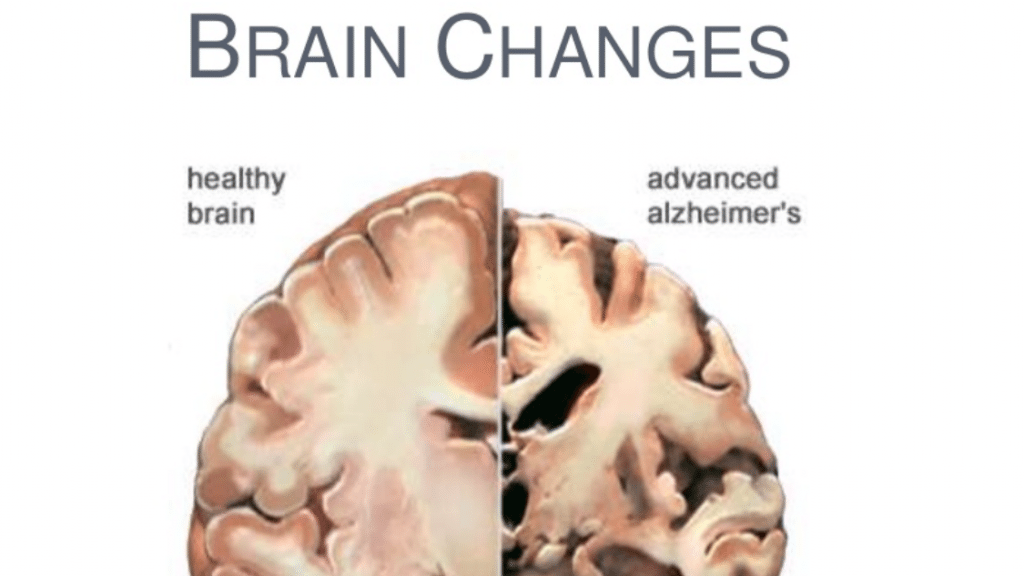
Can tooth loss derived from a part of periodontal disease predict the development of dementia later in life?
Past studies have shown that patients with dementia are more likely than patients without the condition to have poor oral health, but few researchers have examined the relationship to determine whether poor oral health actually may contribute to the development of dementia.
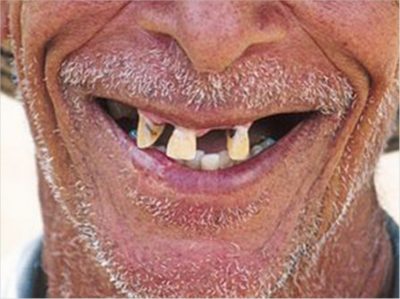
According to research published in The Journal of the American Dental Association, a team from the University of Kentucky College of Medicine and College of Dentistry has investigated a possible link.
The researchers examined data from 144 participants in the Nun Study, a study of aging and Alzheimer’s disease among Catholic sisters of the School Sisters of Notre Dame.
Using dental records and results of annual cognitive examinations, they studied participants from the order’s Milwaukee province who were 75 to 98 years old, finding that: “Of the participants who did not have dementia at the first examination, those with few teeth (zero to nine) had an increased risk of developing dementia during the study compared with those who had 10 or more teeth.”
Researchers proposed several possible reasons for the association between tooth loss and dementia: not only periodontal disease but also early-life nutritional deficiencies, infections or chronic diseases that may result simultaneously in tooth loss and damage to the brain.
And another data says when you eat something, one chewing firmly promotes 3.5cc of blood flow to brain with the fact that the organs such as the periodontal ligament under the tooth are pressed by chewing and the blood is pumped to the brain.
In other words, it’s a great disadvantage if you lose teeth as bloodstream doesn’t work.
What measures should be taken to prevent loss of teeth?
A dental hygienist says that “You should be more aware of the “trash house” in your mouth”. That would result in the periodontal disease, gingiva/gum trouble and as a natural consequence, you lose your teeth.
1) After every meal, use the dental floss to clean between the teeth and to brush your teeth properly. At least 15 minutes is desirable. Especially before going to bed.
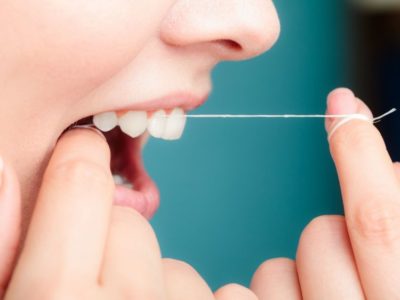
2) The more you chew sufficiently, the more active your brain by stimulating in your mouth. Because the blood flow to the brain improves, consequently the brain is rejuvenated.
3) Saliva is strong cleaning fluids, promotes salivary secretion by turning the tongue in your mouth
as a technique to stem bacterial growth in the oral cavity, periodontal bacteria as well.
4) Go to the dentist to check your teeth regularly.
Finally, needless to say that this preventive measures are not all, there are many other else you have to do in order to lessen the risk of “The Twilight Years”. Whenever I find them, i’ll report it to you, thanks

Besides, the eyes are very important to keep fit, so visit “Presbyopia recovery“thanks

Leave a Comment